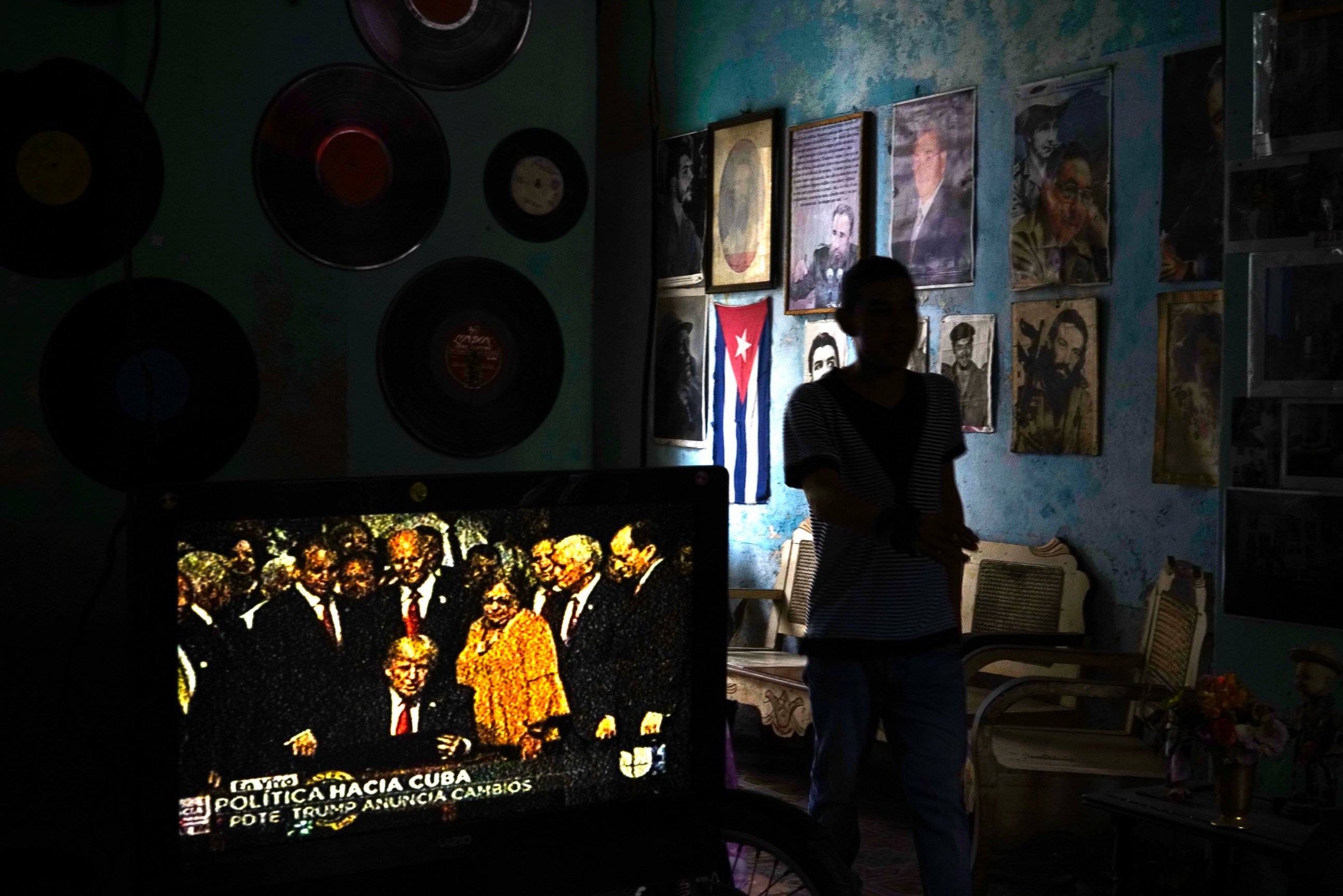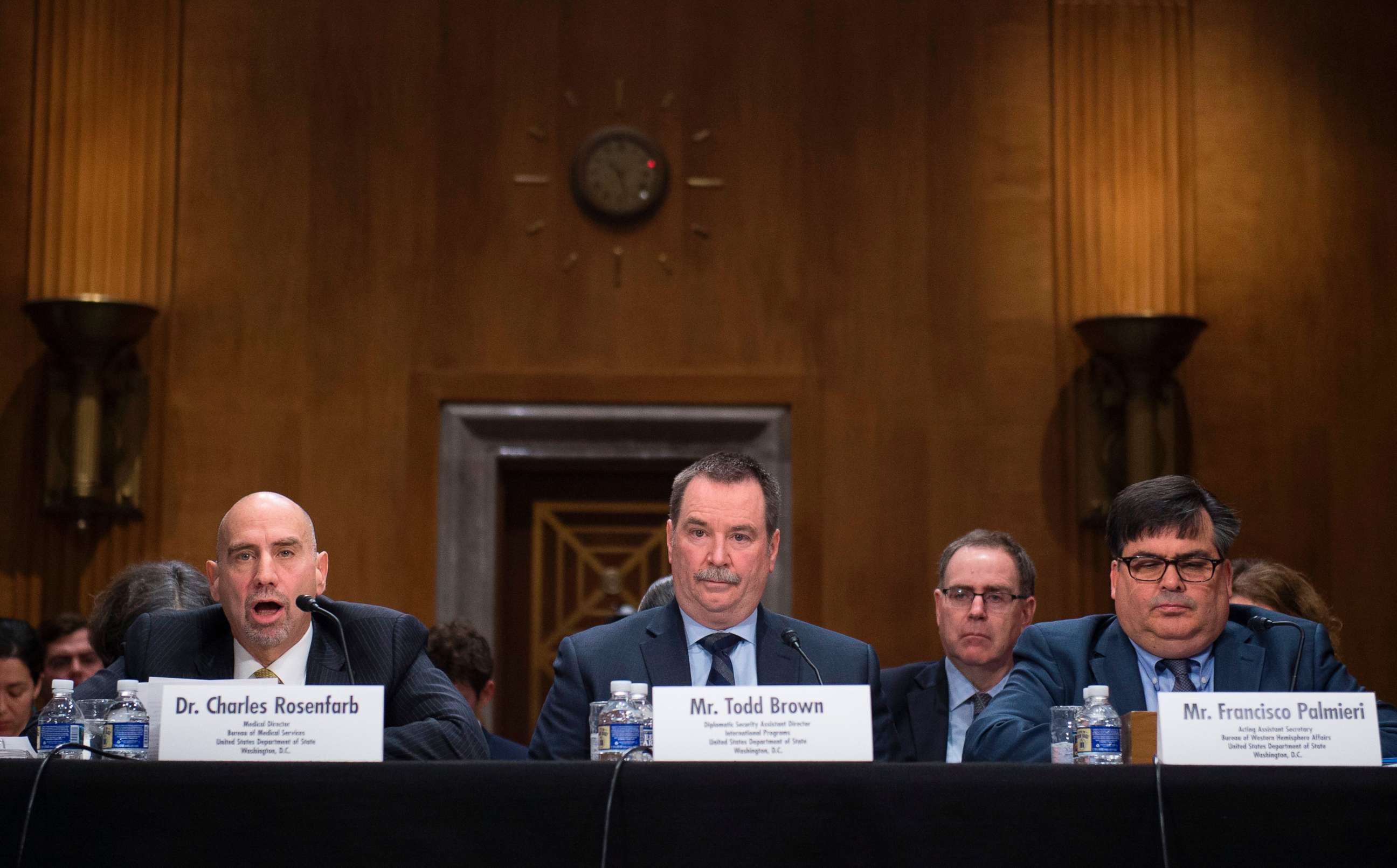Stunning new details in first medical report on US personnel in Cuba
The cause of the mysterious "health attacks" in Cuba remains a mystery.
— -- U.S. personnel at the embassy in Havana who've experienced a rash of symptoms from mysterious "health attacks" appear to have suffered "widespread brain network dysfunction," but there's still no answer about the cause, according to a new peer-reviewed medical report.
The report, published Wednesday by the Journal of the American Medical Association, is the first of its kind on the question that has vexed U.S. officials for over a year now, with 24 Americans suffering from medically-confirmed symptoms, according to the State Department - or what the new report's authors call "neurotrauma from a nonnatural source."

Despite a lack of answers, the report provides some of the clearest details yet of what these Americans experienced in Havana - a buzzing or piercing noise, a pressure sensation, and an array of neurological symptoms that have lasted for months.
The State Department gave the doctors at the University of Pennsylvania’s Perelman School of Medicine access to 21 individuals -- 11 women and 10 men - with a mean age of 43 years old.
Of the 21, 18 reported hearing a noise - a "novel, localized sound at the onset of symptoms in their homes and hotel rooms," described as "directional, intensely loud, and with pure and sustained tonality." They used terms like "buzzing," "grinding metal," "piercing squeals," and "humming," and while the majority said it was high-pitched, two described it as low-pitched.
Twelve of the 18 said it was associated with a "pressure-like" or "vibratory" sensation, and two of the three who didn't hear a sound also experienced that. All 20 of those experienced an "immediate onset of neurological symptoms" after experiencing some phenomena, and the one other individual awoke with immediate symptoms, but experienced no phenomena - noise or sensation.
But what seems key is that first term - directional - a "distinct direction from which the sensation emanated." In fact, 12 said that "after changing location, the sensation disappeared and the associated symptoms reduced."

The most commonly-reported symptoms, in order, were persistent trouble sleeping; visual problems like eye movement abnormalities; cognitive difficulty like memory loss or inability to concentrate; headaches; balance problems; and auditory symptoms like tinnitus and hearing loss.
At the time of evaluation, 14 had not returned to work full-time - although "everyone has shown improvement," according to Dr. Douglas Smith, a neurology professor at the University of Pennsylvania and director of its Center for Brain Injury and Repair.
Cuba has denied responsibility and has cast doubt on whether the American personnel have suffered the reported symptoms, while the State Department says Cuba must know who is responsible.
Some individuals developed symptoms within 24 hours of arriving in Havana, according to the report, and virtually all of them reported persistent symptoms lasting more than three months - with 18 exhibiting "objective clinical manifestations" when they were examined. On average, examinations took place 203 days after exposure, because the State Department didn't convene an expert medical panel until July 2017.
Three individuals suffered hearing loss and were fitted with hearing aids, but for two of them, only on one side. In fact, having "unilateral" symptoms - where only one side is affected - was common in a couple cases, the report said.
But the doctors cannot determine if anything, including the hearing loss, is due to the reported noise.
"It is currently unclear if or how the noise is related to the reported symptoms," they write. "In particular, sound in the audible range is not known to cause persistent injury to the central nervous system and therefore the described sounds may have been associated with another form of exposure."
Dr. Smith went further: "We actually don’t think it was the audible sound that was the problem," he told the medical journal. "We think the audible sound was a consequence of the exposure, because audible sound is not known to cause brain injury."
Still, they largely dismiss mass hysteria: "The Havana cohort experienced persisting disability of a significant nature" - pointing as well to cognitive tests where individuals failed despite "high levels of effort and motivation."
They seem to rule out a virus or chemical causes, too: "No other manifestations of viral illness, such as preceding fever, were identified. It is unlikely a chemical agent could produce these neurological manifestations in the absence of other organ involvement."
And while the symptoms are that of "widespread brain network dysfunction... as seen in mild traumatic brain injury, or concussion," they find no proof of damage to the brain's white matter. MRIs on all 21 were largely normal, except for 3, but those could be "attributed to other preexisting disease processes or risk factors," the study said.
The individuals have seen improvements with therapy - 13 of them were referred for cognitive rehabilitation, 17 for rehab to improve balance, and 14 for rehab to improve eye function. But of the 14 held from work at the time of evaluation, seven did not return to limited work even after beginning therapy.
The authors admit the study is not perfect. Besides the length of time before the patients could be evaluated, the doctors also didn't have a baseline to compare against because the individuals had not undergone a full evaluation before moving to Havana.
Detailed information on the patients - like their names or relationships to each other -- was also withheld by the State Department because of security concerns, making it difficult for peer reviews to evaluate some of the findings.
Those doctors that evaluated them signed non-disclosure agreements, so "they cannot discuss whether they know more about what happened in Havana than has already been made public," according to the journal.




